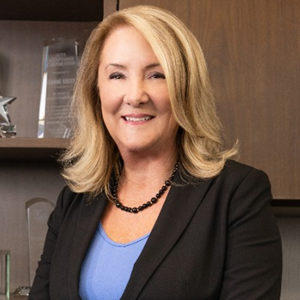This article is part of Callahan & Associates’ “CDFI Grants In Action,” a limited editorial series that showcases how credit unions leverage CDFI funding to advance their mission and deliver measurable impact for members. To learn how CDFI certification can change lives and unlock opportunities at your credit union, visit CU Strategic Planning, A Callahan Company.
Hurricane Maria slammed the U.S. territory of Puerto Rico in 2017, leaving behind landslides, flooding, power outages, destroyed homes, and more. With nearly 3,000 fatalities, the island’s power grid completely destroyed, and damages estimated at $90 billion, it was the definition of a crisis.
Fortunately, a pair of CDFI grants helped JetStream Federal Credit Union ($265.5M, Miami Lakes, FL) play a major role in recovery efforts.
The Problem
The Center for Puerto Rican Studies estimates more than 3,000 people left the island for the U.S. mainland in the wake of the storm, many of them settling in nearby Florida. But for residents of an island more than 1,000 miles from the continental United States, relocating was anything but easy.
For starters, many lenders on the island didn’t allow residents to transport their cars, forcing those who emigrated to the mainland to leave behind their mode of transportation. Once on the mainland, many people needed help covering security deposits for living arrangements, replacing damaged and ruined belongings, and securing other essentials.
Those who stayed behind also had belongings to replace, homes to repair, and urgent expenses to cover.
The storm inflicted $90 billion in damages, and a report from Moody’s estimates insured losses might have reached as high as $30 billion, making Maria one of the costliest hurricanes in U.S. history.
The Solutions
JetStream FCU’s field of membership includes anyone who lives, works, worships, or attends school in Miami-Dade County as well as Carolina, Trujillo Alto, and San Juan counties in Puerto Rico. Its branch presence in Florida and Puerto Rico enabled the credit union to serve displaced members seamlessly.

To help members manage the aftermath of Maria, JetStream tapped two CDFI grants — one of $776,000 for funds to resettle people who left after the hurricane and a $1.25 million grant to help members who remained on the island.
The resettling grant helped new and established members cover costs such as security deposits for rental homes, vehicle shipping, and more.
“Somebody came in to join and right away asked, ‘Can I refinance my car?’ says Jeanne Kucey, CEO at Jetstream. “They wanted to ship it to Florida, so we became the answer for a lot of people.”
Shipping a vehicle from Puerto Rico required members to first refinance their auto loan with JetStream, which enabled them to pay off the loan at the originating institution, then ship it from the island to the mainland at a cost of approximately $2,000. After that, members also could use grant funding to cover the cost of vehicle registration.
Members who stayed on the island needed help, too. One of their major expenses was replacing personal goods, everything from furniture to patio covers, home repairs, and more.
The credit union offered a loan to existing members only that Kucey says was essentially a standard personal loan in terms of pricing; however, JetStream stretched its normal underwriting criteria as far as credit scores, debt-to-income levels, and more, to serve as many people as possible. That’s important because many low-income borrowers used the funds — with loans averaging $10,000 — to improve energy efficiency, eliminate mold, and make essential repairs and updates. The credit union was even able to help two of its own employees who lost nearly everything inside their homes, Kucey says.
“We had a lot of people use these loans to replace their goods,” the CEO says. “We were surprised at how many people had the savings to take care of what they needed, but for those who didn’t, this was a lifeline.”
The Results
Beyond simply deploying CDFI grant funds, these loans became lifelines for members rebuilding their lives and communities. JetStream came through with critical financing to restore homes and replace essentials, but the credit union also empowered those driving relief efforts.
CU QUICK FACTS
JETSTREAM FCU
HQ: MIAMI LAKES, FL
ASSETS: $265.5M
MEMBERS: 14,145
BRANCHES: 61
EMPLOYEES: 6
NET WORTH: 10.8%
ROA: 0.99%
For example, a Puerto Rico-based member who frequently visited the branch for his personal and business services realized the island needed diesel providers to refuel the generators that were powering residents’ homes after the storm. That member and his wife bought a truck on the mainland and shipped it to the island to start Chester Energía y Transportes, a diesel-refueling business.
“They came to us to open a business account to have accessible funds for refueling the tank,” an island staffer wrote to Kucey in an email. “They gathered all the required information and opened their account. Rapidly, many people started using their business. They covered the whole island. They’re grateful that we were there to help start their business. They always talk about how close they feel to us when conducting transactions and how they would never change their membership to another institution.”
The credit union doesn’t have plans to relaunch these disaster recovery loans for future emergencies, but their success has shaped programs like the furlough loan JetStream introduced during the 2025 government shutdown. For Kucey, the experience reinforced the core principle of “people helping people” isn’t just altruism, it’s good business.
“The losses were non-existent,” she says. “Just do the right thing and don’t worry about the bottom line because it all worked out.”